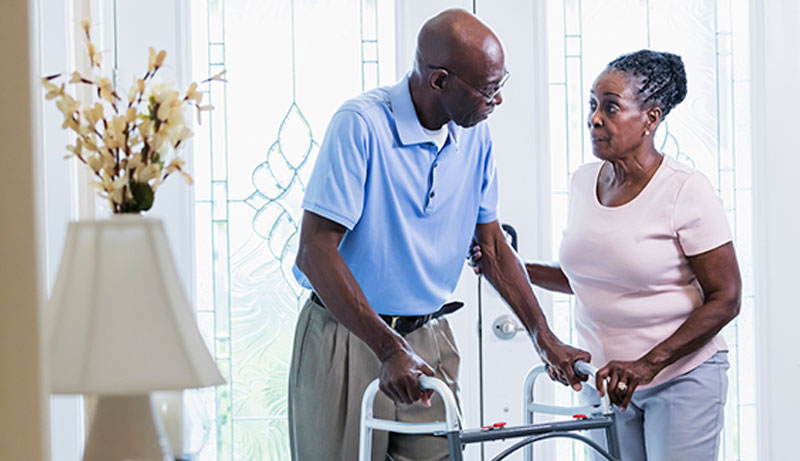
The late stage of Parkinson’s disease can present new caregiving challenges for family members.
A Parkinson’s diagnosis affects family members along with the person who is afflicted. Understanding what to anticipate as the illness progresses is the key to being prepared for the changes to come and to making life the very best it can be each and every day.
Over the last few months, we have shared information about what to anticipate in the early and middle stages of Parkinson’s disease. Information has included what family members can do to best help a loved one with Parkinson’s and how Abby Senior Care can help. In this closing segment in the series, we provide information about taking care of someone with late stage Parkinson’s disease.
Late Stage Parkinson’s Disease
In the late stage of Parkinson’s disease, a significant amount of assistance is required with the activities of daily living. By definition, the late stages of Parkinson’s are noted by a person’s inability to live independently. Initially, standing and walking might remain possible, however with pronounced struggle, and as the condition continues to progress, the individual will not be able to get out of bed or a chair unassisted.
In combination with a heightened risk for falls, hallucinations and delusions can also be common. As a result, full-time, around-the-clock care is necessary to ensure safety.
The Effect of Late Stage Parkinson’s on Family Care Providers
At this stage, the strain and daily expectations of caregiving can take a toll on a family caregiver’s own health. It is quite crucial for family caregivers to reach out and accept assistance, to remain socially connected, and to make respite care a high priority. It is not practical at all for just one individual alone to manage the around-the-clock care required for a person in late stage Parkinson’s.
How Care Providers Can Assist with Late Stage Parkinson’s Care
With added hands-on care required, it’s essential for family caregivers to learn how to properly and efficiently provide this support to minimize the possibility of doing harm to either themselves or the loved one being cared for.
If the older adult isn’t already receiving physical therapy services, check with the physician for a referral. The physical therapist, while helping optimize the person’s ability level, may also advise family caregivers on the ideal approaches for hands-on assistance.
One new symptom that frequently develops in the later stages of Parkinson’s is freezing, when the person is suddenly (but temporarily) unable to move. Methods to help break a freezing episode include:
- Using a laser pointer and asking the person to step on the light
- Utilizing a rhythmic noise, such as clapping, and encouraging the person to take a step with each clap
- Playing music and prompting the individual to walk to the beat
As always, stay close at hand when the person is mobile to avoid a fall.
Make sure to provide an abundance of extra time for day-to-day activities such as getting dressed and eating, which are likely to take longer now. This is important in protecting the person’s self-sufficiency. Even if it requires longer to accomplish a task, it is always better to foster as much self-reliance as you possibly can.
Emotional and mental health issues also may surface now, including depression, memory problems, anxiety, and dementia. These ailments can be hugely daunting for a family caregiver to deal with and should be brought to the attention of a loved one’s physician.
Abby Senior Care’s exceptional Parkinson’s home care team is here to assist you and your loved one through each stage of Parkinson’s. Particularly in these final stages of the disease, having a care partner you can trust and rely on is crucial.
Contact us at 303-699-8840 for a free in-home consultation for more information on our senior care services and ways in which we can ease the transitions through Parkinson’s for both you and the older adult you love.
